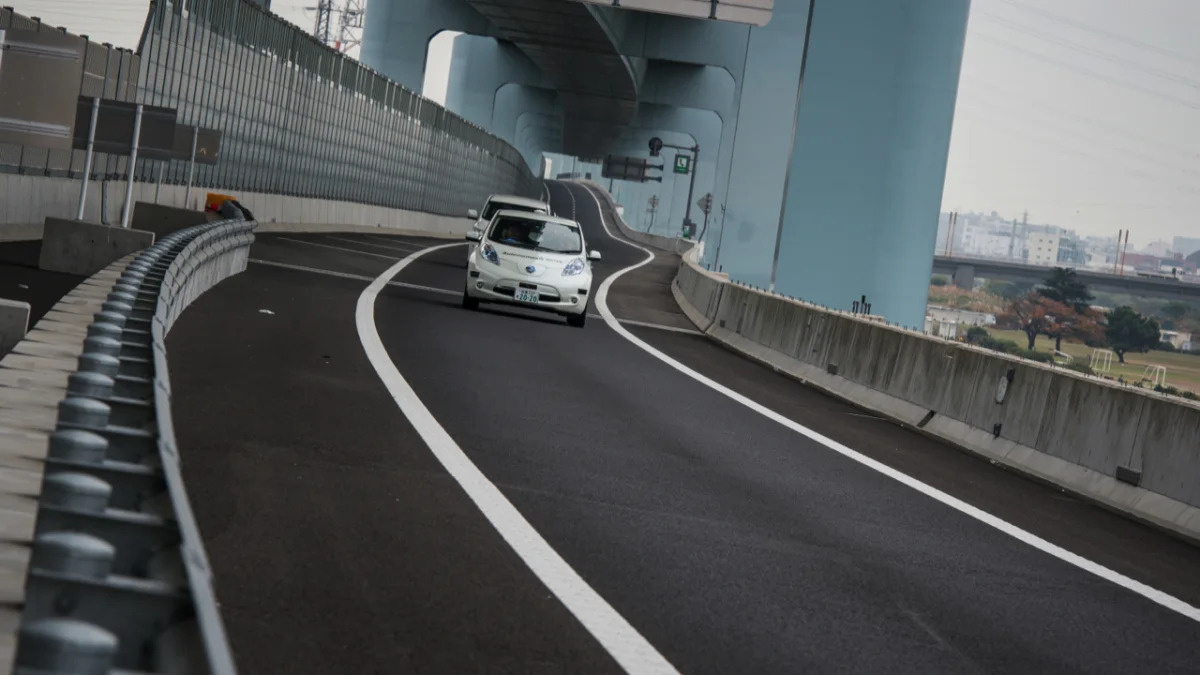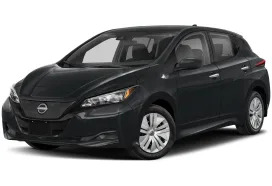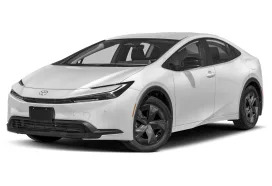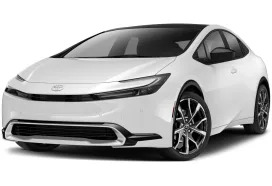We're not sure how to translate "ghost-riding the whip" in Japanese, but Nissan appears to have mastered the concept. Earlier this week, the Japanese automaker tested a self-driving Nissan Leaf electric vehicle on public roads for the first time and proclaimed the exercise a success in driverless motoring.
Nissan equipped the vehicle with its so-called Autonomous Drive feature and took the car out onto Sagami Expressway in Kanagawa prefecture. The car, the first with Autonomous Drive to receive a license plate in Japan, is programmed to merge, change lanes and maintain a safe distance relative to other vehicles, all without the aid of a driver's controls.
Nissan has joined a growing list of companies that are testing the concept of autonomous driving, which in some circles is seen to potential improve both safety and fuel economy. Most notably, Swedish automaker Volvo last year tested its Sartre road train project in Spain. Volvo used three vehicles equipped with cameras, radar and laser sensors that tailed a truck for about 120 miles going about 53 miles per hour. The cars were about 20 feet apart and were programed to accelerate, brake and turn in the same way as the lead truck, which all worked as planned. Looks like Nissan's efforts bore the same fruit, as you can see in Nissan's video and press release below.
Nissan equipped the vehicle with its so-called Autonomous Drive feature and took the car out onto Sagami Expressway in Kanagawa prefecture. The car, the first with Autonomous Drive to receive a license plate in Japan, is programmed to merge, change lanes and maintain a safe distance relative to other vehicles, all without the aid of a driver's controls.
Nissan has joined a growing list of companies that are testing the concept of autonomous driving, which in some circles is seen to potential improve both safety and fuel economy. Most notably, Swedish automaker Volvo last year tested its Sartre road train project in Spain. Volvo used three vehicles equipped with cameras, radar and laser sensors that tailed a truck for about 120 miles going about 53 miles per hour. The cars were about 20 feet apart and were programed to accelerate, brake and turn in the same way as the lead truck, which all worked as planned. Looks like Nissan's efforts bore the same fruit, as you can see in Nissan's video and press release below.
Nissan Carries Out First Public Road Test of Autonomous Drive on Expressways in Japan
YOKOHAMA, Japan – Nissan Motor Corporation has carried out the first public road test of Autonomous Drive on a Japanese highway. A Nissan LEAF electric vehicle equipped with the revolutionary technology took to the Sagami Expressway in Kanagawa prefecture, southwest of Tokyo, with the prefecture's Governor, Yuji Kuroiwa, and Nissan Vice Chairman Toshiyuki Shiga, on board. The vehicle operated fully automatically on the highway. Journalists witnessed the tests and later had the opportunity to experience the car on the highway themselves.
"Nissan seeks a safer, more comfortable and environmentally friendly mobile future," said Shiga, vice chairman of Nissan. "Through these tests on an expressway, we hope to further advance our technological development, with the goal of soon implementing Autonomous Drive vehicles. When starting a new project, serious effort is required to gain an understanding of all the variables involved. We were able to conduct this important testing on the Sagami Expressway thanks to the strong support from Kanagawa Prefecture."
The milestone event in the development of next-generation mobility was carried out with the cooperation of Kanagawa Prefecture. It took place near the "Sagami Robot Industry Special Zone," an area that is being revitalized with the help of the local government. Projects include the development of life-assist robots, which are equipped with sensors, artificial intelligence, and control systems. The public road test conducted in the special zone will help Nissan to develop Autonomous Drive towards its goal of being ready with commercially viable vehicles by 2020.
The Nissan LEAF used on the public road testing was the first vehicle with Autonomous Drive capability to be granted a license plate in Japan last September. Nissan's prototypes are equipped with Autonomous Drive technology that detects road conditions and automatically operates the car's main controls, including steering, braking and acceleration. The vehicles can operate in full automatic mode on the expressway, merge into traffic, change lanes and maintain a safe distance from other vehicles.
About Nissan Motor Co.
Nissan Motor Co., Ltd., Japan's second-largest automotive company, is headquartered in Yokohama, Japan, and is part of the Renault-Nissan Alliance. Operating with approximately 236,000 employees globally, Nissan sold more than 4.9 million vehicles and generated revenue of 9.6 trillion yen (USD 116.16 billion) in fiscal 2012. Nissan delivers a comprehensive range of over 60 models under the Nissan and Infiniti brands. In 2010, Nissan introduced the Nissan LEAF, and continues to lead in zero-emission mobility. The LEAF, the first mass-market, pure-electric vehicle launched globally, is now the best-selling EV in history.
YOKOHAMA, Japan – Nissan Motor Corporation has carried out the first public road test of Autonomous Drive on a Japanese highway. A Nissan LEAF electric vehicle equipped with the revolutionary technology took to the Sagami Expressway in Kanagawa prefecture, southwest of Tokyo, with the prefecture's Governor, Yuji Kuroiwa, and Nissan Vice Chairman Toshiyuki Shiga, on board. The vehicle operated fully automatically on the highway. Journalists witnessed the tests and later had the opportunity to experience the car on the highway themselves.
"Nissan seeks a safer, more comfortable and environmentally friendly mobile future," said Shiga, vice chairman of Nissan. "Through these tests on an expressway, we hope to further advance our technological development, with the goal of soon implementing Autonomous Drive vehicles. When starting a new project, serious effort is required to gain an understanding of all the variables involved. We were able to conduct this important testing on the Sagami Expressway thanks to the strong support from Kanagawa Prefecture."
The milestone event in the development of next-generation mobility was carried out with the cooperation of Kanagawa Prefecture. It took place near the "Sagami Robot Industry Special Zone," an area that is being revitalized with the help of the local government. Projects include the development of life-assist robots, which are equipped with sensors, artificial intelligence, and control systems. The public road test conducted in the special zone will help Nissan to develop Autonomous Drive towards its goal of being ready with commercially viable vehicles by 2020.
The Nissan LEAF used on the public road testing was the first vehicle with Autonomous Drive capability to be granted a license plate in Japan last September. Nissan's prototypes are equipped with Autonomous Drive technology that detects road conditions and automatically operates the car's main controls, including steering, braking and acceleration. The vehicles can operate in full automatic mode on the expressway, merge into traffic, change lanes and maintain a safe distance from other vehicles.
About Nissan Motor Co.
Nissan Motor Co., Ltd., Japan's second-largest automotive company, is headquartered in Yokohama, Japan, and is part of the Renault-Nissan Alliance. Operating with approximately 236,000 employees globally, Nissan sold more than 4.9 million vehicles and generated revenue of 9.6 trillion yen (USD 116.16 billion) in fiscal 2012. Nissan delivers a comprehensive range of over 60 models under the Nissan and Infiniti brands. In 2010, Nissan introduced the Nissan LEAF, and continues to lead in zero-emission mobility. The LEAF, the first mass-market, pure-electric vehicle launched globally, is now the best-selling EV in history.









Sign in to post
Please sign in to leave a comment.
Continue